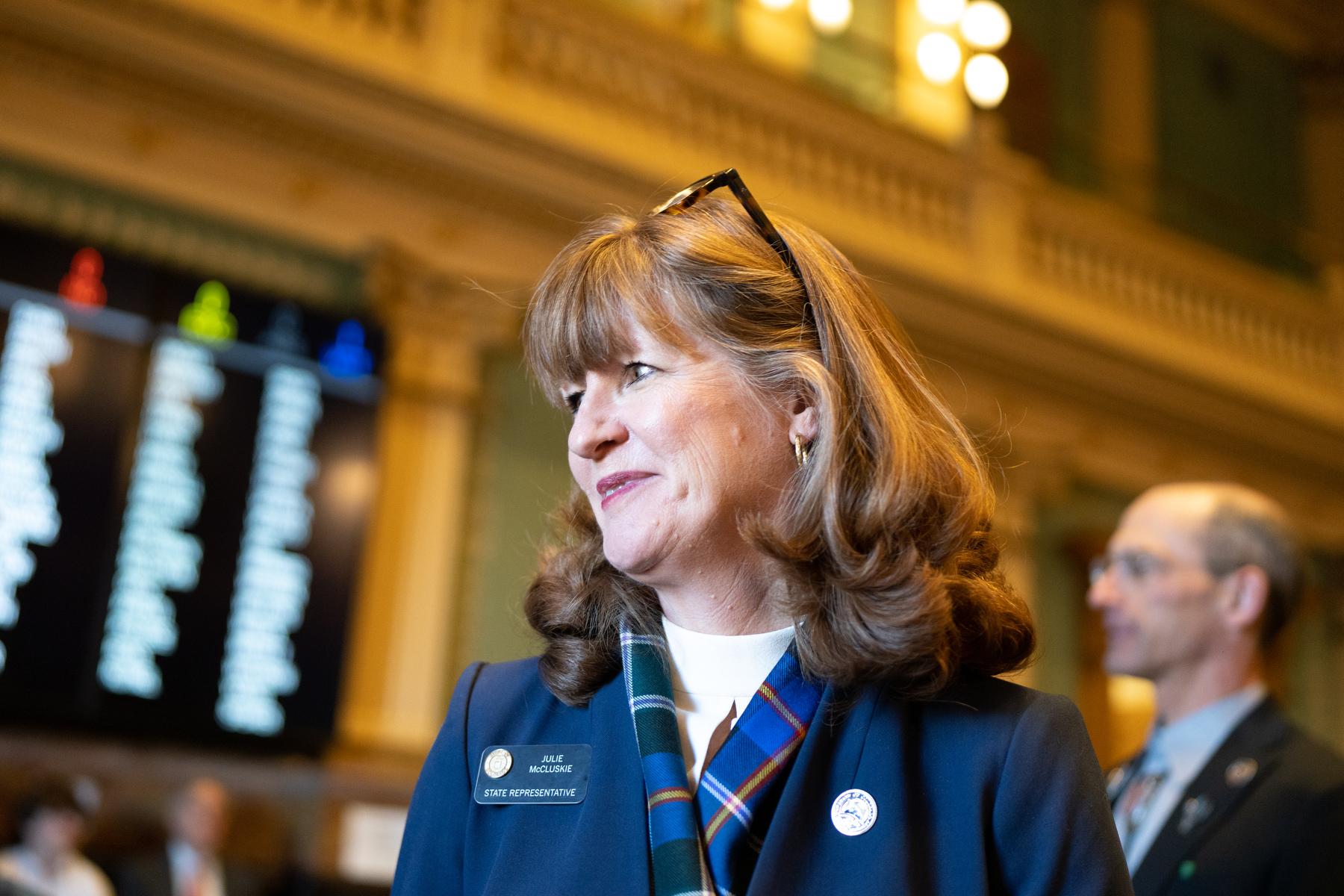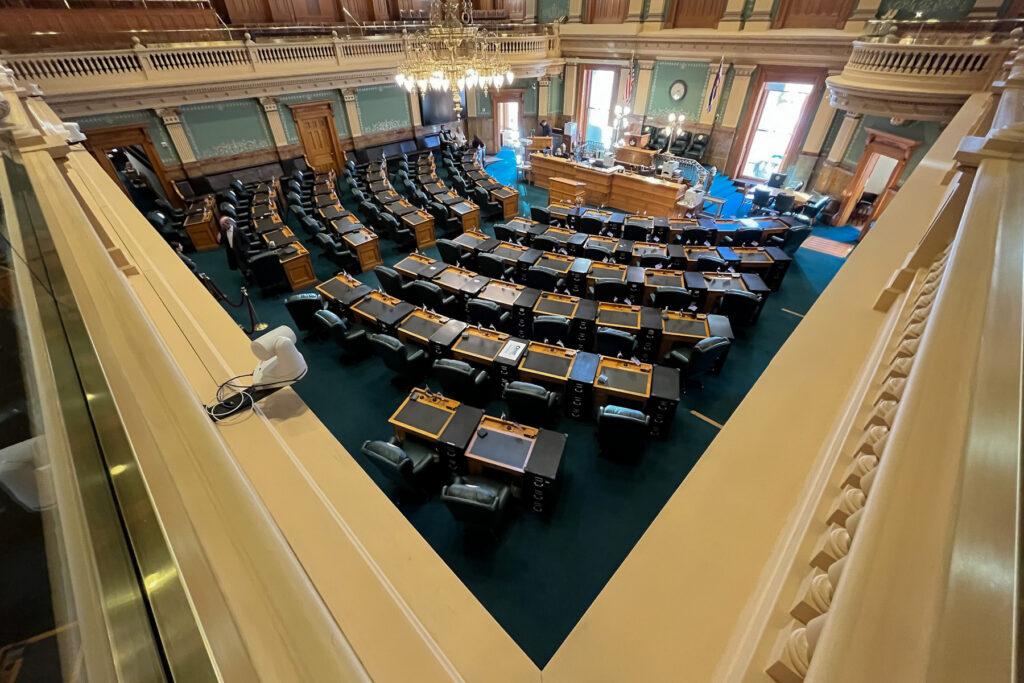
The Colorado capitol will be bustling today for the start of the state’s annual legislative session.
Lawmakers convene under the backdrop of high national political tensions, international conflicts and the added pressure of an election year.
Over the next four months lawmakers will introduce hundreds of bills, on every topic that touches public life in Colorado. Legislative rules allow each of the assembly’s hundred members to sponsor at least five pieces of legislation during the session.
There’s been little leadership turnover in the offseason, although the Senate has a new Majority Leader, Sen. Robert Rodriguez of Denver.
Leaders in both parties say tackling high costs of housing, and making it more affordable in general to live in Colorado, will continue to be top priorities. What specific policies they’ll propose though, will be revealed in the coming weeks.
Last year, the governor’s ambitious — and divisive — land use package failed on the final day of the session, and elements of that proposal are expected to return in separate bills to try to address how Colorado manages growth.
While Democratic efforts have generally focused on pushing local governments to allow denser development, Republicans say they want more reforms to Colorado’s construction defects laws, to try to jumpstart condo building.

With larger majorities, Democrats face more internal divisions
Democrats hold historically large political majorities in the legislature, which means one big question is how far to the left they will be willing to go on policies.
During the last session, the makeup of some Senate committees was a sore spot for progressive lawmakers. The closely divided panels empowered moderate Democrats, who at times blocked or watered down some progressive priorities. One House member went so far as to nickname the scarlet-walled Senate chamber ‘the red room of doom.’
Democratic Sen. Dylan Roberts of Frisco was one of those moderates who served on key committees last year.
For 2024, he’ll chair the Senate Agriculture Committee and serve as the vice chair of Judiciary. He described the conflicts last session were just growing pains as a result of increased Democratic majorities.
“(There) are pretty big divisions within caucuses, both ideologically and stylistically,” said Roberts, noting that historically those divisions have largely existed between the two parties.
“I think what we saw a lot of — in the House especially, but also in the Senate — in 2023 was disagreements within the Democratic Party or within the Republican Party between a more moderate wing and a more progressive wing,” said Roberts. “That has spilled out into not just policy disagreements, obviously, but (also) stylistic and other, larger philosophical debates.”
In recent weeks, two first-term Democrats resigned from the House, both citing the vitriolic political atmosphere as among their reasons for leaving. And only days ago, the House Speaker took the rare step of issuing a public reprimand to a member of her own caucus.
Cost of living a universal concern
While the last regular session of the legislature adjourned in May, lawmakers have seen each other much more recently than that.
They met for a special legislative session just before Thanksgiving to pass temporary property tax relief for homeowners and larger TABOR refunds and tax benefits for the working poor. Democrats overwhelmingly backed all the bills. Republicans largely opposed them, arguing that the tax relief didn’t go far enough, and that many of the other policies amounted to a wealth transfer.
Still, while they’re divided on the solutions, lawmakers from across the state agree that the cost of living is a huge challenge facing Colorado.
“Things from childcare to groceries … have become too expensive for Coloradans,” said Democratic Rep. Leslie Herod of Denver. “In the next session, we'll continue to work on that to see what we can do to ensure that we have access to opportunity, economic opportunity, for everybody,”
Herod said in addition to helping families, lawmakers also need to focus on uplifting small businesses.
“I have felt and seen a lot of our small businesses right here in Denver close and shutter not to be reopened. Some of them have been legacies in our city and in our communities, and they just can't seem to make it work anymore.”
For Republicans, the new session is a chance to make their case to voters, with an eye on building back from their historic minority. Republican Rep. Matt Soper of Delta said he’d like the GOP to be more strategic, and doesn’t think it’s healthy to have one party dominate all of state government.
“I know that everyone in Colorado — Republicans, Democrats, unaffiliated — wants to see the Republican Party of Colorado be competitive again,” said Soper, “because we need to be able to restore the balance and we need to be able to be the check on the majority party.”









